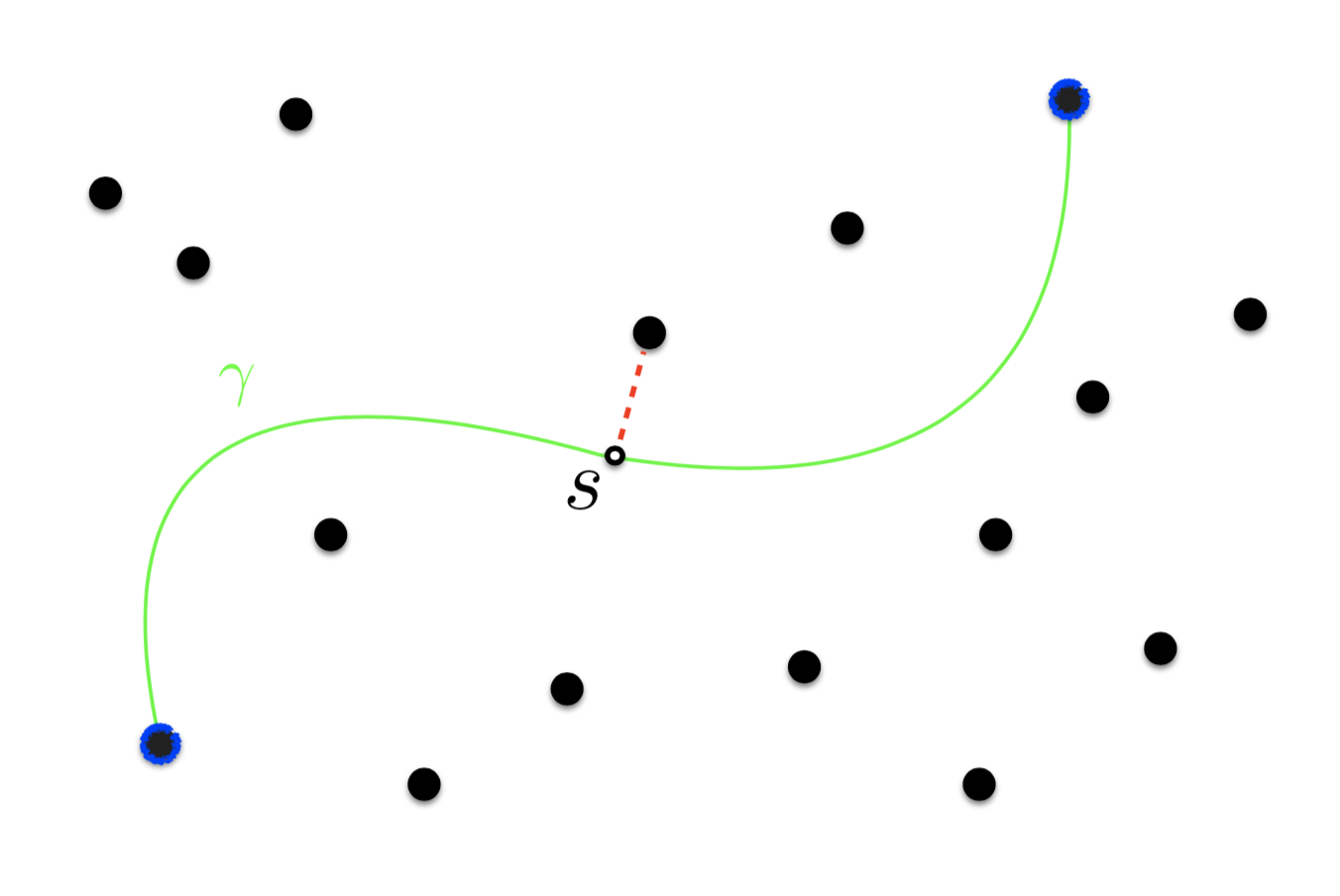Exact computation of a manifold metric, via Lipschitz Embeddings and Shortest Paths on a Graph
SODA: Proceedings of the ACM-SIAM Symposium on Discrete Algorithms, 411-425
2020

Data-sensitive metrics adapt distances locally based the density of data points with the goal of aligning distances and some notion of similarity.
In this paper, we give the first exact algorithm for computing a data-sensitive metric called the nearest neighbor metric.
In fact, we prove the surprising result that a previously published 3-approximation is an exact algorithm.
The nearest neighbor metric can be viewed as a special case of a density-based distance used in machine learning, or it can be seen as an example of a manifold metric.
Previous computational research on such metrics despaired of computing exact distances on account of the apparent difficulty of minimizing over all continuous paths between a pair of points.
We leverage the exact computation of the nearest neighbor metric to compute sparse spanners and persistent homology.
We also explore the behavior of the metric built from point sets drawn from an underlying distribution and consider the more general case of inputs that are finite collections of path-connected compact sets.
The main results connect several classical theories such as the conformal change of Riemannian metrics, the theory of positive definite functions of Schoenberg, and screw function theory of Schoenberg and Von Neumann.
We also develop some novel proof techniques based on the combination of screw functions and Lipschitz extensions that may be of independent interest.
@inproceedings{chu20exact,
Author = {Timothy Chu and Gary L. Miller and Donald R. Sheehy},
Booktitle = {Proceedings of the ACM-SIAM Symposium on Discrete Algorithms},
Title = {Exact computation of a manifold metric, via Lipschitz Embeddings and Shortest Paths on a Graph},
Pages = {411--425},
Year = {2020}}